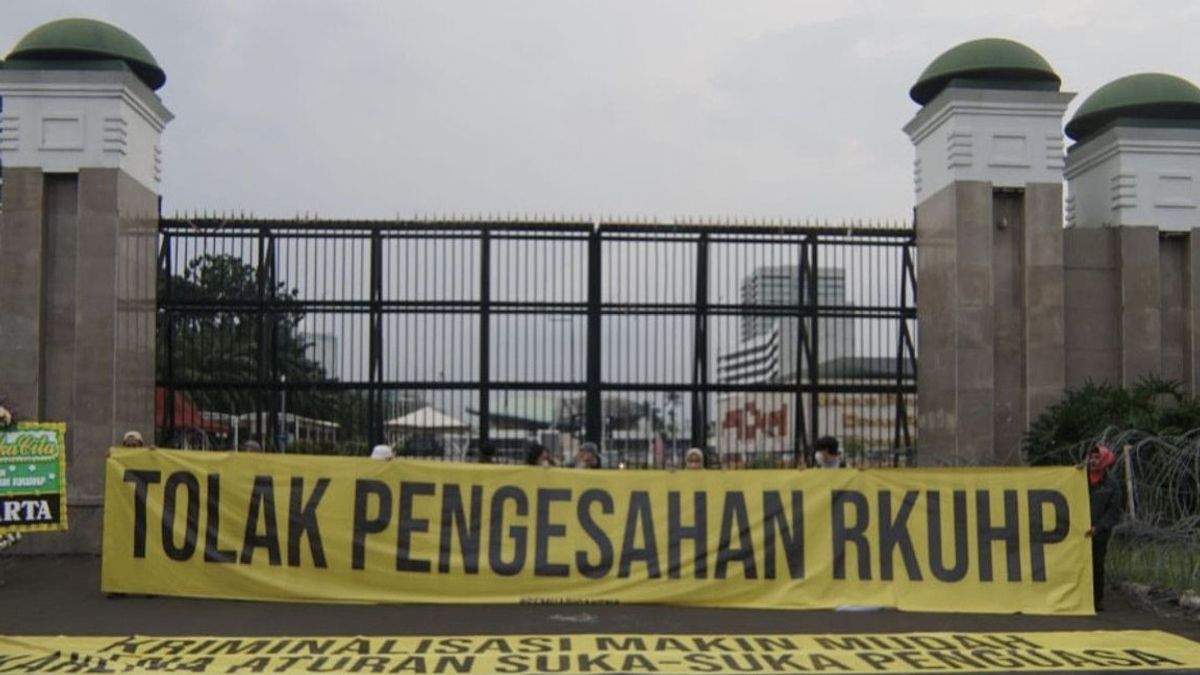The ratification of the Criminal Code (KUHP) by the Indonesian House of Representatives on Tuesday attracted the attention of foreign media which highlighted the issue of freedom of privacy, to the assessment of democratic setbacks.
In an article entitled "Indonesian Groups Decry Destruction of Democracy 'as New Criminal Code Curbs Sex, Free Dpeech" The South China Morning Post (SCMP) contains criticism from activists to UN special whistleblower activists, assessing that the new law curbs sex issues to free speech.
Not only that, the ratification is also considered to have the potential to return Indonesia to authoritarian rule, democratic setback, with UN Special Reporting Clement Voule urging authorities and asking the House of Representatives to ensure that the law complies with international law, changing articles that could hinder human rights.
Meanwhile, Deutsche Welle (DW) in an article entitled "Indonesia's Criminal Code Bans More Than Premarital Sex", highlights authoritarianism to strict restrictions on political ideas, including by strict regulation of demonstration issues according to activists.
Not only that, it is also feared that the new rules will hinder women's access to reproductive health, criminalize victims of sexual harassment and pressure women to uphold public morality.
Separately, in an article entitled "Indonesia Bans Sex Outside Marriage as Parliament Passes Sweeping New Criminal Code", CNN highlighted a law that also applies to foreign residents and tourists.
It said Indonesia experienced an increase in conservatism, changes in criminal law are not only worrying about human rights defenders, who warn of their potential to silence personal freedom.
But also representatives of the travel industry are concerned about their potential impact on tourism, referring to estimates of disrupting business communities related to foreign nationals and tourists.
The BBC in an article entitled "Indonesia Passes Criminal Code divided Sex Outside Marriage" contains criticism from researchers comparing research from Gulf countries, where there are similar laws governing sex and relationships, suggesting that women are more often convicted and subjected to morality than men.
It is known that the articles that are considered problematic include prohibiting insulting the president, vice president and state institutions, views that contradict the ideology of the Pancasila state, protests without permission, sex outside of marriage, and family gatherings.
Indonesia itself has used the Dutch era criminal law after independence in 1945. Since 1963, seven presidents including Widodo and 19 justice ministers have tried to create new criminal laws.
"The Dutch era of law products are no longer relevant to Indonesia. The Criminal Code Bill is very reformative, progressive, and also responsive to the current situation in Indonesia," said Minister of Law and Human Rights Yasonna Laoly, Tuesday.
The English, Chinese, Japanese, Arabic, and French versions are automatically generated by the AI. So there may still be inaccuracies in translating, please always see Indonesian as our main language. (system supported by DigitalSiber.id)













